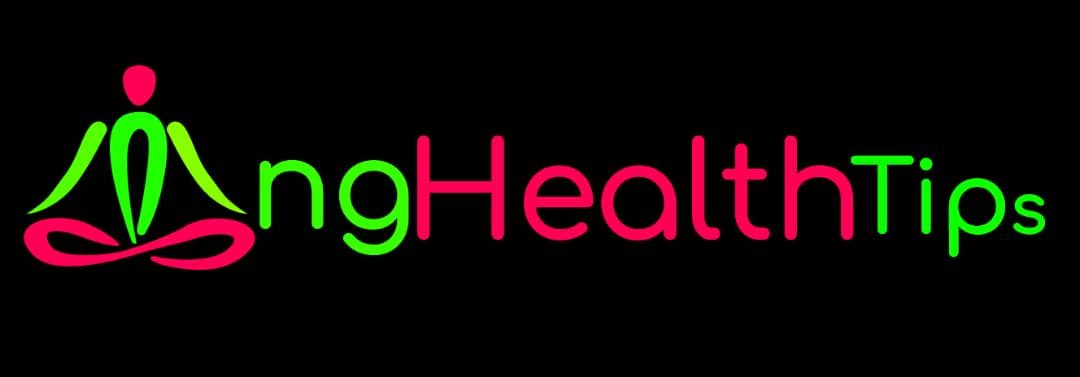Towards Effective Regulation of AI and Telemedicine in Nigeria: Policy Implications for Healthcare Innovation
Introduction
With the emergence of artificial intelligence (AI) and telemedicine that are revolutionalising the global health space, the question of how these innovations are regulated translates into higher importance. Governments globally have started to develop the policy strategies for ethical issues, privacy and clinical responsibility related to these technologies (WHO, 2021). To a large extent, like many other nations in Africa, Nigeria will benefit so much from smart applications such as AI and telemedicine to boost healthcare due to infrastructural constraints. But, these enhanced services could encounter problems of misuse, inequity, or probable ethical dilemmas if the firm lacks enough regulatory polices. Analysing the aforementioned approaches of existing regulation from the international, ECOWAS, and Nigerian viewpoints, this paper enunciates policy recommendation for the progressive advancement of secure and inclusive AI and telehealth in Nigeria.

Image source: Meta
Global Perspectives on AI and Telemedicine Regulation
Around the world, countries and organisations have increasing they are implementing regulations for AI and telemedicine patients and data protections, and use. EU takes the lead with such efforts with the setting of the Artificial Intelligence Act that classifies AI systems based on levels of risk and puts regulatory measures depending on the ramifications of such systems (European Commission, 2021). The act demands for responsible implementation and usage of Artificial Intelligent models especially for patients’ safety especially in hospitals and any other health facilities (European Commission, 2021).
The United States has also recently advanced steps towards the regulation of digitized health. FDA created the Digital Health Innovation Action Plan that outline the use of AI in medical devices and health application (FDA, 2021). That is why this plan points out the fact that AI systems, which should be safe, efficient, and transparent, will shield patients from errors and biases (FDA, 2021).
However, WHO has recently formulated a broad set of strategic AI recommendations for health care seven key themes from which are transparency, accountability, and plurality (WHO, 2021). They provide a basis for ethical reflection highlighting the importance of similar norms for member states, Nigeria included, in their digital health initiatives.
Regional Perspectives on AI and Telemedicine Regulation in Africa
In Africa, concepts of AI and telemedicine are relatively new, but there are already some regional guidelines for their implementation. The African Union and Smart Africa have come up with Digital Transformation Strategy for Africa (2020-2030) where most of the area focuses on digital health and AI in enhancement of health care in African region. This strategy also indicates that African countries need to have standard regulations that will enable a secure and fair health innovation.
These include Rwanda and South Africa which have embarked on the task of developing the regulations on the use of artificial intelligence and telemedicine in smart regions respectively. Rwanda has joined forces with the Centre for the Fourth Industrial Revolution to develop a sandbox environment for AI solutions which includes health, where developers can attempt to implement AI-based models of healthcare delivery under controlled conditions (Chivot, 2020). For example, South Africa has the Protection of Personal Information Act or POPIA and this is alike to GDPR which equally set extremely high data protection standards that could also be used as guidelines for the regulation of telemedicine and AI.
The following regional initiatives have amplified the need of coordination to regional as well as international partners to ensure that there is harmonized data protection as well as ethical use of AI throughout Africa: Nigeria in as much as it is a regional leader could use these frameworks policy formulations which will enable it address the health care needs of its people in consonance with the overall ECOWAS health care policies.

Image Source: Meta
National Perspective: Nigeria’s AI and Telemedicine Regulatory Landscape
Currently, there are no extensive rules in Nigeria to regulate AI as well as the application of telemedicine in the healthcare facility. However, the National Health Act (2014) and the Nigerian Data Protection Regulation (NDPR, 2019) contemporary laws provide some frame works for patients’ rights and data privacy (National Information Technology Development Agency [NITDA], 2019). The effectiveness of the NDPR is that it makes it compulsory for organisations that process personal data including health care facilities to observe the data protection principles even though the NDPR itself does not directly speak on AI or telemedicine (NITDA, 2019).
The National Health ICT Strategic Framework (2015-2020) of Nigeria vision is to bring the use of digital health in delivering healthcare but lacks set requirements for the legal use of AI and telemedicine (Federal Ministry of Health, 2015). It is now a good time to push forward digital health initiatives, yet: terrible policies are outdated with no guidance on AI use, data sharing, responsibility, and quality.
Furthermore, the recent enacted Startup Act (2022) may provide a general support for AI and telemedicine developments in Nigeria, funding and incentives for the fields of healthcare innovations comprised of digital health technologies (Startup Nigeria, 2022). However, for the bi-modal system to operate there is the need for AI-specific policies because of the risks associated with misuse of data, biases in AI algorithms, and diagnostic errors especially in the regions that are not well endowed.
Policy Implications and Recommendations for Nigeria
a). National AI and Telemedicine Regulatory Body: The use and regulation of AI and telemedicine in health care could be mentored by specialised body to maintain ethical rules and safety of the patients (Adewole & Osuji, 2022). The members of this body could include interacting with regulatory bodies globally to provide the best standards and capacity for building among the healthcare professionals and AI developers.
b). Building Research Capacity Around Data Protection and the Right to Privacy
Nigeria’s NDPR should be revisited to annex provision that relate to rights in relation to healthcare data produced through artificial intelligence and telemedicine. The imperative of these provisions should include patient consent, anonymisation of data and control to check on any unauthorised use of sensitive patient information.
c). Actualising the Implementation of Ethical AI Guidelines
The government must engage ethical benchmarks in the regulation of utilisation of artificial intelligence algorithms for supporting healthcare provision, by overseeing that such programmes are ethical and meet the tests of being transparent, fair, and accurate. Policies should insist on the need to test these models to the highest standards and pay particular keen attention to/preventing bias that may pose a threat to the diagnostic outcomes of the Nigerian populace (WHO, 2021).
d). Digital infrastructure and access equity needed to be promoted.
These lessons can only be fully utilised if Nigeria begins to invest in digital communication networks and especially in the rural areas where the telemedicine will be most effective. Some of the ways that could advance of telemedicine to all the citizens included public private partnership that could extend internet connection (African Union, 2020).
(e). Collaboration between Sectors
It is noteworthy that the comprehensive regulation often requires effort integrating the representatives of the health sector, technology industry, and policy-making domain. Such a partnership can ensure that the deficiency of health care is met with the advancement in technology in Nigeria, in developing AI and telemedicine that are workable and morally acceptable (Chivot, 2020).
Conclusion
AI and telemedicine has remained promising innovative approaches to Nigeria’s healthcare system, which might improve patients’ experience and result as well as increase the accessibility of the healthcare system. However, if there is no regulation, the following challenges are likely to be encountered; Data privacy, ethics of artificial use, and poor access. From best practices in health care from other countries and the larger region, coherent rules that will guard patients and the health sector as well as bolster innovation and sustainability can be derived. There lies a massive importance of establishing anticipatory laws in regulating the growing adoption of AI and telemedicine so that they can achieve their most positive impact on Nigeria’s healthcare sector.
Footnotes:
Adewole, D., & Osuji, O., (2022). “Exploring the Challenges of AI Integration in Nigerian Healthcare: Regulatory and Ethical Perspectives.” Nigerian Journal of Medicine, 31(2), 101-111.
African Union, (2020). Digital Transformation Strategy for Africa (2020–2030). Retrieved from https://au.int/en/documents/2020-digital-strategy
Chivot, E., (2020). “Rwanda’s AI and Data Policy: Regional Leadership through Regulatory Innovation.” Center for the Fourth Industrial Revolution. Retrieved from https:/c4ir.org
European Commission. (2021). Proposal for a Regulation Laying Down Harmonized Rules on Artificial Intelligence (Artificial Intelligence Act). Retrieved from https://ec.europa.eu/digital-strategy
FDA. (2021). Digital Health Innovation Action Plan. Retrieved from https://www.fda.gov/digitalhealth
Federal Ministry of Health, (2015). National Health ICT Strategic Framework 2015–2020. Abuja, Nigeria: Federal Ministry of Health.
National Information Technology Development Agency (NITDA), (2019). Nigeria Data Protection Regulation (NDPR). Retrieved from https://nitda.gov.ng/ndpr/
Odinkalu, C., & Ademola, S. (2021). “Africa’s GDPR Moment: Data Protection in the Era of AI.” African Law Journal, 22(4), 239-250.
Startup Nigeria, (2022). Nigeria Startup Act. Retrieved from https://startupnigeria.ng/act
World Health Organization, (2021). Ethics and Governance of Artificial Intelligence for Health: WHO Guidance. Geneva: WHO.








